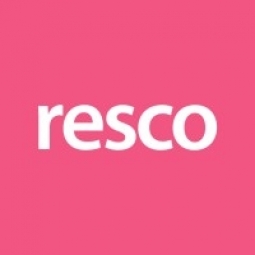Customer Company Size
Large Corporate
Region
- Europe
Country
- Germany
Product
- Resco Mobile CRM
- Microsoft Dynamics CRM 2016
Tech Stack
- iOS
- Android
- Windows
Implementation Scale
- Enterprise-wide Deployment
Impact Metrics
- Productivity Improvements
- Digital Expertise
Technology Category
- Application Infrastructure & Middleware - API Integration & Management
- Functional Applications - Enterprise Resource Planning Systems (ERP)
Applicable Functions
- Sales & Marketing
- Business Operation
Use Cases
- Supply Chain Visibility
- Inventory Management
Services
- Software Design & Engineering Services
About The Customer
Freudenberg Sealing Technologies is a longstanding technology expert and market leader in sealing technology and electric mobility solutions worldwide. With its unique materials and technology expertise, the company is a proven supplier for demanding products and applications, as well as a development and service partner to customers in the automotive industries and in general industries. Since 1929, the company has built a growing portfolio of sealing and vibration control technology products, including customized solutions and complete sealing packages. Together with partners in Japan, China, and India, Freudenberg has formed a global network with the aim of offering products of the same high quality across the planet. In 2017 the company generated approximately €2.3 billion in sales and employed over 15,000 people.
The Challenge
Freudenberg Sealing Technologies was looking to replace its paper lead sheets used during trade shows and conferences. After sales representatives had a meeting with a prospective client, they had to fill out a paper form covering the debate and their lead. Once they’ve returned to the office, they then needed to manually transcribe the information to Freudenberg’s Microsoft Dynamics CRM. The objective was not only to digitalize the paper forms, but allow reps to utilize and interact with the information stored in the CRM – enabling them to add contacts, select accounts from the system, choose from the topics prepared for each show based on products and segments, and add appointment notes as well. With all the data flowing straight into Dynamics CRM and used by the back office.
The Solution
Freudenberg Sealing Technologies chose Resco Mobile CRM because it’s full offline functionality and vast customization possibilities. On trade shows there’s often slow or unstable Wi-Fi or network connection. And sometimes there can be also no Internet connection at all. Secondly, the Resco app connects directly to Dynamics CRM utilizing Microsoft web services. No middleware required. The company were also delighted to find out that the application works across iOS, Android and Windows, as they wanted to run it on iPhones, iPads, and Surface Pro devices. To implement any modifications, they only needed to set them up in the mobile project once and the changes were applied immediately across all platforms.
Operational Impact
Quantitative Benefit

Case Study missing?
Start adding your own!
Register with your work email and create a new case study profile for your business.
Related Case Studies.

Case Study
Remote Temperature Monitoring of Perishable Goods Saves Money
RMONI was facing temperature monitoring challenges in a cold chain business. A cold chain must be established and maintained to ensure goods have been properly refrigerated during every step of the process, making temperature monitoring a critical business function. Manual registration practice can be very costly, labor intensive and prone to mistakes.

Case Study
Hospital Inventory Management
The hospital supply chain team is responsible for ensuring that the right medical supplies are readily available to clinicians when and where needed, and to do so in the most efficient manner possible. However, many of the systems and processes in use at the cancer center for supply chain management were not best suited to support these goals. Barcoding technology, a commonly used method for inventory management of medical supplies, is labor intensive, time consuming, does not provide real-time visibility into inventory levels and can be prone to error. Consequently, the lack of accurate and real-time visibility into inventory levels across multiple supply rooms in multiple hospital facilities creates additional inefficiency in the system causing over-ordering, hoarding, and wasted supplies. Other sources of waste and cost were also identified as candidates for improvement. Existing systems and processes did not provide adequate security for high-cost inventory within the hospital, which was another driver of cost. A lack of visibility into expiration dates for supplies resulted in supplies being wasted due to past expiry dates. Storage of supplies was also a key consideration given the location of the cancer center’s facilities in a dense urban setting, where space is always at a premium. In order to address the challenges outlined above, the hospital sought a solution that would provide real-time inventory information with high levels of accuracy, reduce the level of manual effort required and enable data driven decision making to ensure that the right supplies were readily available to clinicians in the right location at the right time.











